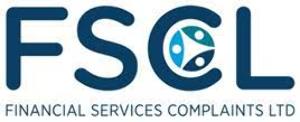Advisers, clients urged to be clear on clawbacks
Mortgage advisers have been told to make sure borrowers fully understand that they can be subject to a clawback fee if a bank loan is paid back early.
Tuesday, November 22nd 2022, 9:33AM  7 Comments
7 Comments
by Eric Frykberg

The comments come from the main industry arbitration body, Financial Services Complaints Ltd (FSCL).
This organisation was considering the case of a couple who bought a house in 2020, using one adviser, and then another one, in 2022, using another.
This led to a claim for $3500 in clawback fees from the first adviser. The couple objected to this, and took a complaint to the FSCL.
In the course of the dispute, the adviser first halved, then cancelled the clawback claim. The couple accepted this and FSCL closed the file.
However, it urged all advisers to make sure they made clear that there could be potential payment of clawbacks.
FSCL said advisers' services were free to a customer, because they were paid by a bank. If the loan was repaid early, the bank could claim some of its payments to an adviser who could then in turn invoice the customer.
But it said many borrowers were completely unaware of this.
“As well as clearly disclosing the fee in the documentation, we encourage mortgage advisers to discuss the potential for a clawback fee with the borrower when arranging the finance,” FSCL wrote.
“The adviser should explain when a fee may be charged, the approximate amount of the fee and how the fee has been calculated.”
In its report on this case, FSCL disclosed information from the adviser that clearly revealed the possibility of clawback to the couple.
But the couple said they thought this referred to their bank loan, not to their dealings with the adviser.
An earlier version of this story incorrectly quoted FSCL as saying most mortgage advisers fail to tell clients about the possibility of clawbacks. In fact, this was stated by the complainants, not by FSCL.
| « Big rise in OCR expected | Vincent Capital adds a South Island BDM » |
Special Offers
Comments from our readers
Short-term lending for development and sale, or renovations and rollover, but brokers should be managing this on a fee basis anyway.
I would rather this was tackled as a deferred time and materials discussion and disclosure where the clients know what the bill is, and the function of the commission is then directly related to the bill that has been deferred for a period of time.
The client then has a record of that cost (it's invoiced under some deferral scheme approach), and it is far more transparent.
On the risk commission side, I think it should only be allowed in this way. The present approach removes the natural impact of over and inappropriate selling.
If the advice is sound and the approach is reasonable then the clients stick. I think in 10 years, I've only had maybe half a dozen full clawbacks, and that was due to unforeseen circumstances. any others have been changes that have been able to be managed, i.e. job loss, employer benefits, or medical events the client declined to take cover on...
The idea of commission and clawback is to manage the risk of short-term selling and provides a natural behaviour oversight that no one actually has to get their big stick out. Sure some clients are painful, but at the same time, the adviser needs to do better client due diligence too.
If an adviser is experiencing undue dropoff and clawbacks, then they need to have a close look at what they are doing because the selection of good clients for your business is critical to your ongoing business stability.
Sign In to add your comment
| Printable version | Email to a friend |



